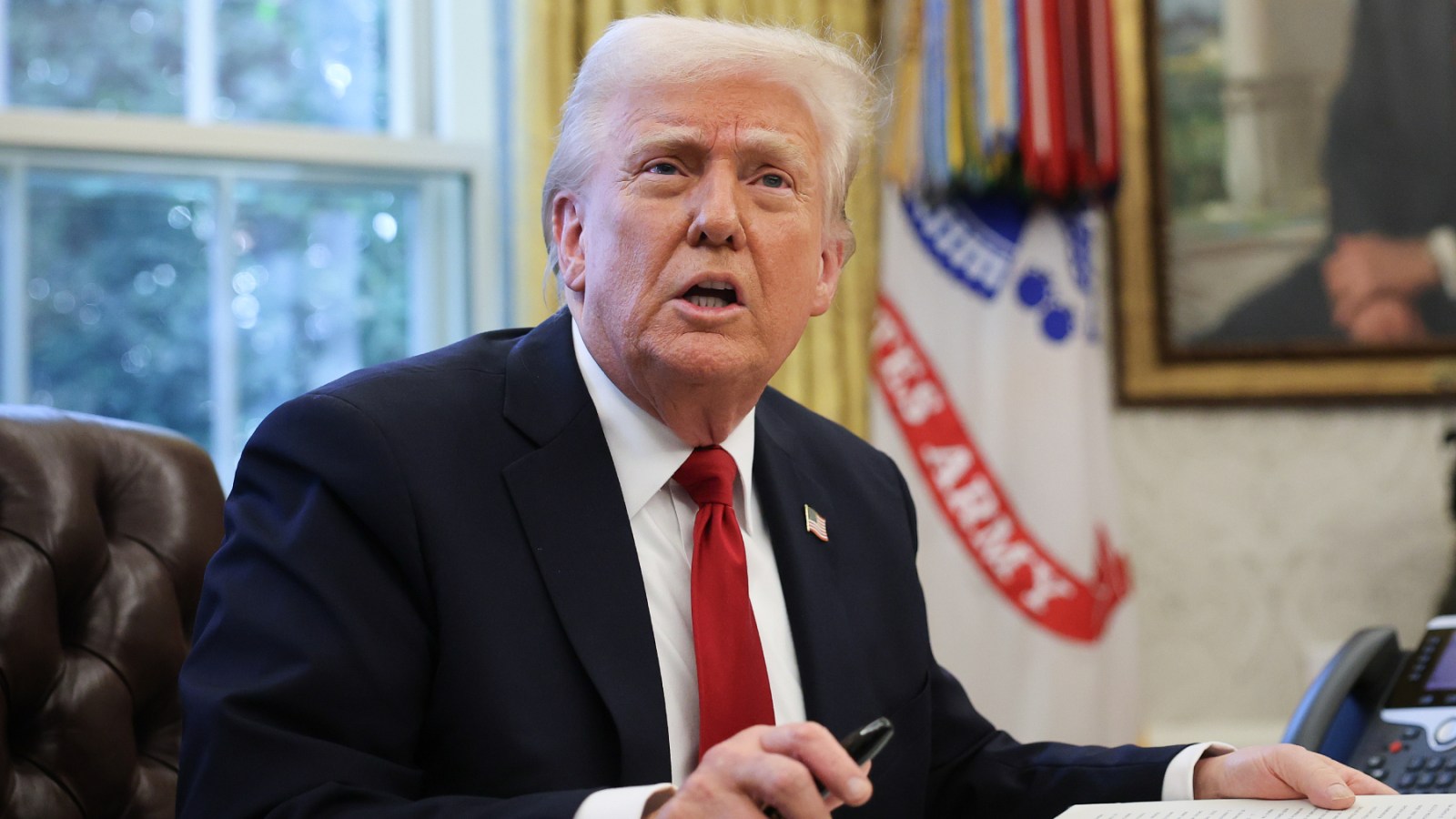
A federal judge filed a preliminary injunction late on Friday that temporarily blocked the Trump administration from removing the bargaining rights of two-thirds of the federal workforce, which was widely considered retaliation against unions for challenging his power.
Senior U.S. District Judge Paul Friedman in Washington, D.C. wrote in his order that President Donald Trump’s March executive order — where Trump claimed that these labor protections could threaten national security — is “unlawful.” Friedman also wrote that an opinion explaining his reasoning will be issued in a few days.
Trump’s executive order, which AFL-CIO President Liz Shuler called “the most significant attack on workers’ rights in history,” applied to workers at a wide swath of agencies, including the Department of Defense, the Department of Justice, the Department of Veterans Affairs, the Treasury Department, the Department of Homeland Security, and the Department of Health and Human Services.
“Certain federal unions have declared war on President Trump’s agenda,” the White House said in a statement when it announced the executive order, adding: “The largest federal union describes itself as ‘fighting back’ against Trump. It is widely filing grievances to block Trump policies.”
In a hearing Wednesday, Friedman read the White House fact sheet on the executive order. “He’s willing to be kind to those that work with him, but those that have sued him … he’s not going to bargain with,” Friedman said to a Justice Department lawyer. “How else can you read what he’s done?”
Shuler applauded Friedman’s injunction.
“We commend the court for recognizing the Trump administration’s executive order stripping collective bargaining rights for what it was: illegal, retaliatory union-busting,” Shuler said in a statement. “This was the most significant attack on workers’ rights in history, and if Trump was allowed to do it to federal workers, he would be able to do it to every worker in America, in every workplace and every industry.”
Multiple unions filed lawsuits against the executive order. The preliminary injunction filed on Friday is in response to the suit from the National Treasury Employees Union, which represents 160,000 federal government employees at 37 federal agencies. The union asked for “emergency relief to protect itself and the workers it represents from this unlawful attempt to eliminate collective bargaining for some two-thirds of the federal workforce.”
“Today’s court order is a victory for federal employees, their union rights, and the American people they serve,” NTEU National President Doreen Greenwald said in a statement.
“The preliminary injunction granted at NTEU’s request means the collective bargaining rights of federal employees will remain intact and the administration’s illegal agenda to sideline the voices of federal employees and dismantle unions is blocked. NTEU will continue to use every tool available to protect federal employees and the valuable services they provide from these hostile attacks on their jobs, their agencies and their legally protected rights to organize,” she added.
Another lawsuit, filed in early April by a group of unions, including the American Federation of Government Employees and National Nurses United, claims that Trump is retaliating against the workers for standing up against his widespread firings of the federal workforce and restructuring of the federal government more broadly.
The AFGE announced Friday that Trump’s executive orders had weakened it to the extent that it is planning on laying off more than half its staff.
A bipartisan bill, Protect America’s Workforce Act, also aims to stop the executive order.
“We support efforts to improve government efficiency, but applying sweeping national security exemptions to agencies risks doing more harm than good,” Rep. Brian Fitzpatrick (R-Pa.), a co-sponsor of the bill, told Federal News Network. “These agencies are vital to public service. Undermining collective bargaining in these spaces weakens morale, accountability and performance.”